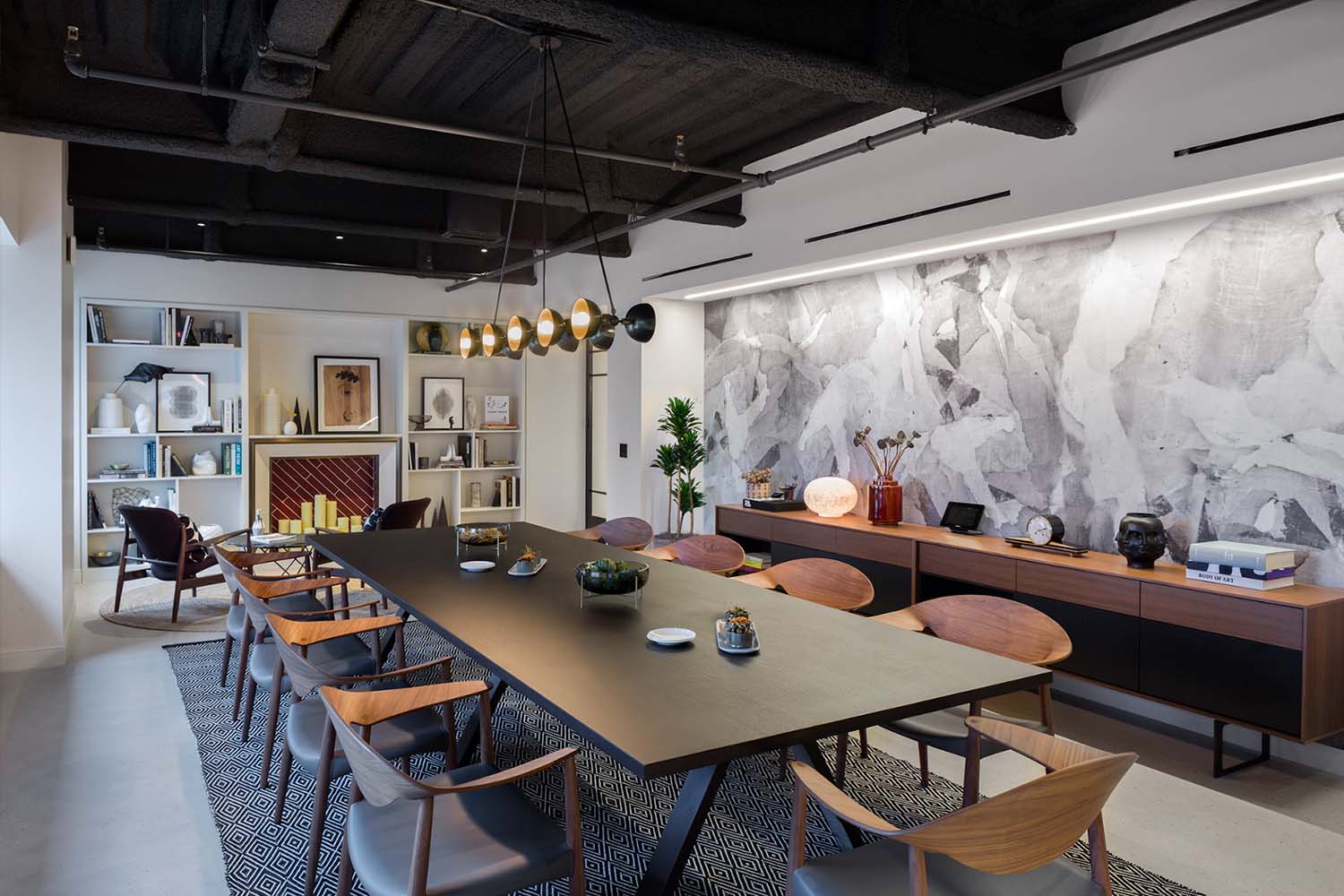“What if you ran an office building like a hotel?”
That’s the question Convene, a hospitality company that specializes in design-forward and tech-enabled meeting, event and work spaces, set out to answer back in 2009. Thirteen years later, they’ve opened 23 locations across six major cities — including Boston, Washington DC, Chicago, Philadelphia and London — with more than half based out of New York City. (Manhattan has been the largest co-working space market, with Regus and, the most infamous of the brands, WeWork dominating the shared office space market, since 2018).
People, as it turns out, are very interested in office buildings that run like hotels.
But that was before the pandemic. Now only nine of Convene’s New York-based locations are still open. It’s hardly surprising — the relationship between pandemic life and co-working spaces is a fickle one. For a time, the pandemic put the need for such spaces on pause, with so many people working from home and carving out small, makeshift offices in their own homes. But then, when some companies began closing their offices permanently opting instead for flexible workspaces, the demand for co-working spaces began to increase again at a rapid clip.
Now you might assume that as other workplaces have begun adopting hybrid work schedules (e.g. three days in the office and two days at home, or some variation thereof), the popularity of co-working spaces has once again begun to wane — but that assumption would be wrong. Rather, some companies — startups chief among them — are actually “lining up” for what they view as “low-commitment offices,” per The New York Times. Just last week, WeWork (still the biggest co-working company) reported a first quarter 2022 revenue of $765 million, representing a 7% quarter-over-quarter increase and a 28% year-over-year increase.

To take that one step further, according to a study by Statista, it’s predicted that there will be more than 6,200 co-working spaces in the U.S. by the end of 2022, and more than 28,550 worldwide. That’s up more than 1,670 and 11,950, respectively, from 2018’s pre-pandemic levels. Additionally, according to those same projections, there will be some 41,975 co-working spaces worldwide by the end of 2024, which totally invalidates the notion that co-working spaces have reached peak relevance.
“Remote work allowed us to skip our commutes, yet it had immense challenges — unreliable internet, loneliness, lack of concentration, inability to separate work life and home life, to name a few,” says President & COO of Convene Amy Pooser. “The future of work is hybrid, with 78% of workers saying they want location flexibility in the workplace, according to a recent Convene survey. Having a workplace away from home, gives workers the opportunity to create a secondary space to focus, enhance productivity, collaborate and come together.”
As evidence of this, Convene recently reopened its first (and, for the time being, only) “club” location in New York. (It originally opened back in 2019 but closed shortly thereafter due to the pandemic.) Located on the 32nd floor at 75 Rockefeller Plaza and 32 stories up, Club 75 has all the luxuries of Soho House, but for just $1,250 a year and only between the hours of 8am to 4pm.
And it’s easy to see the appeal — in co-working spaces writ large and Club 75, specifically. For its part, the latter is aesthetically pleasing, the ambiance is exactly right, and it’s full-service to boot. That is to say, in addition to the museum-worthy art collection courtesy of RXR (you can literally set up shop under an original Keith Haring or an original Picasso) and access to number of event spaces and after-hours events, members also enjoy a daily breakfast and lunch menu featuring “inspired renditions of classic dishes” (lemon ricotta pancakes, anyone?) and libations to match.

In terms of the physical space, there are bookable boardrooms, which includes a more intimate “dining room” space, clusters of tables in the main area that seat as many as eight and as few as two, as well as multiple burnt orange, crushed-velvet lined nooks into which workers looking for a bit more privacy can tuck into. There are also several miniature living room-inspired setups, fully equipped with coaches and coffee tables — a welcome juxtaposition next to the boardrooms, particularly for those not quite ready to jump back into a traditional office setting. (They make for the perfect spot to enjoy the aforementioned lemon ricotta pancakes, too.)
And, arguably the best part is that, while there may be lines to get into co-working spaces like WeWork, Club 75 guarantees exclusivity — to date there are only around 50 members. In other words: it truly feels like your own personal work space, in spite of the uptick in demand. Though, according to Pooser, that line of thinking sort of misses the point.
“The pandemic has proven how productive we can all be working from anywhere. What we’ve all been missing is the human connection — the ability to create lasting relationships, culture, and collaboration by being together in real life,” Pooser says. “We need to support all forms of human productivity and collaboration, therefore hybrid work models are the future. The implication for co-working spaces is that they will serve as gathering spaces not only for meetings, but also for social purposes”
“People will seek out spaces in quality environments, and that deliver elevated experiences and provide a balance of work and pleasure combined into one location,” she adds.
It is her hope that they count Club 75 among those locations.
This article appeared in an InsideHook newsletter. Sign up for free to get more on travel, wellness, style, drinking, and culture.
























